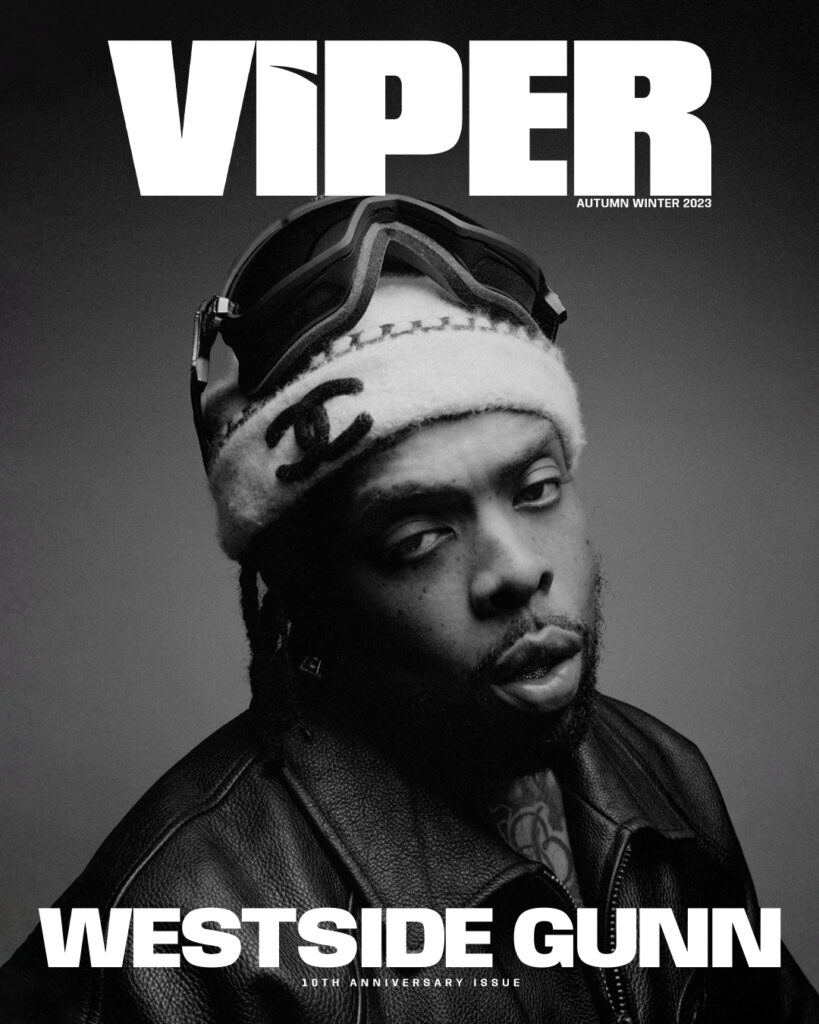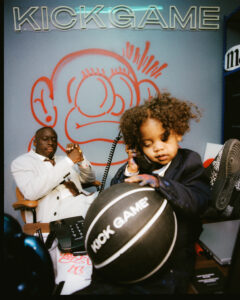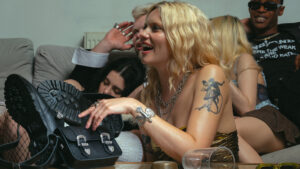REGGIE OSSÉ HAS HAD ONE OF THE MOST ENVIABLE CAREERS IN THE RAP INDUSTRY. COMING UP AS A YOUNG ATTORNEY DURING THE GOLDEN AGE OF RAP, HE’S WORKED WITH HIS FAIR SHARE OF ICONS, FROM JAY-Z TO CAPONE-N-NOREAGA. BUT IT’S HIS RELATIONSHIP WITH DAME DASH THAT TRULY STANDS OUT, AS HE EXPLAINED WHILE SITTING DOWN FOR THIS VIPER INTERVIEW.
In a time when everyone seems to want to be in the spotlight of their chosen industry instead of behind the scenes, Ossé’s story is an inspiring one. Starting out interning at Def Jam Records, he eventually became responsible for their legal department, before entering into a managing editor role at The Source. The author of the definitive book on hip hop jewellery, ‘Bling’, today he’s responsible for one of the best rap podcasts on the Internet, The Combat Jack Show.
In this profile, Reggie Ossé tells Viper about his climb to the top, why a bank robber was his favourite interview ever and why he had to hang up on Dame Dash…
Have you ever had an interview that was just really bad?
My worst interview was with somebody who I thought had the best story; French Montana. [He] has, I think, one the greatest stories that spans the globe with regard to the history of hip hop. He’s a guy who was born in Morocco, migrated to the States and came up during the Max B wavy mixtape era, [then] got shot in the head. I just remember asking him, like… “French, talk about when you got shot in the head, like give us that experience, walk us through it” and what his response was… “it hurt”. I was like that… “that’s it?!” [laughs] And then I get it, like there’s a difference between a lot of legacy rappers or celebrities or artists that I interview who really have this rich story and feel like time is trying to pass them by and they want to make sure that their legacy is preserved. And new artists that are just getting money so they can’t really see the importance of documenting and making sure that their legacy is preserved because they have to get money right now. No shots at French but you asked me and I’ll be honest, that was my worst interview of all time.
Hip hop has always been about storytelling and it’s therapeutic to hear people telling their stories and in some way getting over some things through that.
Because when we get to hear your stories, it’s another way to endear yourself across that line between fan and celebrity. You endear yourself as a human being. We all go through the best and worst of times and when we can hear the worst of your times and how you have persevered, it’s inspirational to us.
You were originally an attorney before becoming a journalist, do you think that there’s a lack of people understanding the legal side of working in rap music?
I mean we’ve always lived in a microwavable era, like pop entertainment is microwavable but never has it been so immediate [with] all these amazing devices where you can access anything within a minute. I don’t want to be the older guy that says “back in my day this and that”, but we live in an age where the audience right now doesn’t even know the importance of buying music. Music is free. So in this age, where you look on screen and your peers pop out of nowhere to being a top guy in hip hop, that seems the only route. It seems like becoming an attorney, a doctor or a stockbroker, whatever other job or trade – that seems like an out of the way journey when everything is immediate through your keyboard. Do I want to explain the value in that? No. I mean, I don’t want to say that it’s a bad thing but we could use more doctors and lawyers and architects as opposed to rappers, I mean the game is so congested right now.
I once read about this guy, I can’t remember the guy’s name, which is my point. He engineered more than 30 of the biggest hip hop classics of all time, I think it was five Biggie songs and like every East Coast rapper that you could think of, he’d worked with them. But I’d never heard his name, a studio engineer who in actual fact played a bigger part in hip-hop than most people that’d had a one hit wonder.
Right. Well was he happy in his anonymity? I mean everyone’s different, some people thrive to be in the limelight, some people are very, very happy to be behind the scenes. I’m happy between both.
At what point did you get out of the legal system and get into journalism? Was it something you’d already thought of?
I never purposely aimed at becoming a journalist, I’m still kinda like, really? When I first came into the music industry in late ’89 or ’90 and I interned at Def Jam, my two groups of super stars were the rappers who were big at the time; Public Enemy, LL Cool J, EPMD; and The Source Magazine staff. The Source Magazine staff, they were actually more super heroic to me because they were like me, they were the peers. Now they were drafting incredible stories about our superheroes. So in a sense back then I kind of had this longing to be a part of The Source team, but then I went on to have a wonderful career in the music industry as an attorney that spanned about 15 years. Then in 2003 the music started to change, the business model started to change, the money started to change and also to me being an attorney was always forced. Even though I was fortunate enough to work in the culture and the industry with the music and the people that I wanted to work with, the head of an attorney was still an unnatural thing to me; I think I’ve always been more of a creative. Forcing my way through this legal practise, I was very good [and] I enjoyed my career but I stopped when I couldn’t fake it anymore, I felt like a fraud. It’s like, I don’t want to be that guy. I’m also irresponsible and impulsive, at certain points I’m getting up by this stage and I’m shutting everything down with no plan B.
Reggie Osse passed away on 20 December 2017. Rest in Peace to an icon.
This is an extract from Issue 7, The Barely Legal Issue of Viper Magazine. Read more from the magazine here. Buy physical and digital copies here.
Photos by Jessica Lehrman
Words by Lily Mercer




